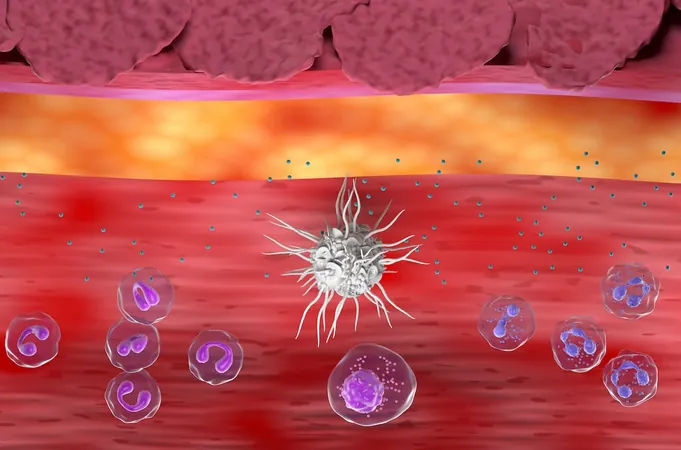
Breakthrough Study Reveals How Brain Chemicals Control Hunger: A Game-Changer for Obesity Drugs?
2024-12-24
Author: Li
Introduction
A groundbreaking study has uncovered the intricate ways in which brain chemicals regulate our hunger and food intake, unveiling potential pathways for creating more effective anti-obesity medications. Conducted by a team at Baylor College of Medicine in the United States, this research highlights the roles of dopamine and GABA (gamma-aminobutyric acid) in the intricate dance of hunger signaling.
Study Findings
Utilizing animal models, the researchers discovered that dopamine, known for its role in excitement and reward, along with GABA, which induces a calming effect, can inhibit the production of another essential neurotransmitter—serotonin—when an organism begins to eat. Nestled within the dorsal Raphe nucleus of the midbrain, serotonin is not only crucial for mood stabilization but also plays a significant role in signaling feelings of fullness.
Role of Neurotransmitters
Yong Xu, a leading researcher and professor of pediatrics-nutrition at Baylor, explained, 'When animals are in a hungry state, the neurons that produce serotonin in the dorsal Raphe nucleus are suppressed by GABA and dopamine. This reduction in serotonin levels permits the initiation of feeding.' As the animals consume food and reach the point of satiety, serotonin production ramps up, sending signals to the arcuate nucleus of the hypothalamus (ARH), which communicates the message to 'slow down on eating.' The ARH acts as a critical energy monitor, influencing metabolic responses throughout the body.
Synergistic Effects
One of the study's most intriguing findings is the synergistic effect that occurs when both GABA and dopamine are present. Together, these chemicals suppress serotonin production more effectively than either substance alone, demonstrating a complex yet efficient mechanism of hunger regulation.
Implications for Obesity Treatments
The implications of this research could be monumental for understanding obesity. With these insights into how the brain governs appetite, scientists are better equipped to devise targeted obesity treatments that could significantly harm the global obesity epidemic.
Conclusion
As the quest for effective obesity drugs intensifies, this study may signal a new frontier in tackling an issue that affects millions worldwide. Could this lead to the next generation of weight loss medications? Only time will tell, but the future of brain-based obesity treatments appears brighter than ever. Stay tuned for more updates on this fascinating topic!



 Brasil (PT)
Brasil (PT)
 Canada (EN)
Canada (EN)
 Chile (ES)
Chile (ES)
 España (ES)
España (ES)
 France (FR)
France (FR)
 Hong Kong (EN)
Hong Kong (EN)
 Italia (IT)
Italia (IT)
 日本 (JA)
日本 (JA)
 Magyarország (HU)
Magyarország (HU)
 Norge (NO)
Norge (NO)
 Polska (PL)
Polska (PL)
 Schweiz (DE)
Schweiz (DE)
 Singapore (EN)
Singapore (EN)
 Sverige (SV)
Sverige (SV)
 Suomi (FI)
Suomi (FI)
 Türkiye (TR)
Türkiye (TR)